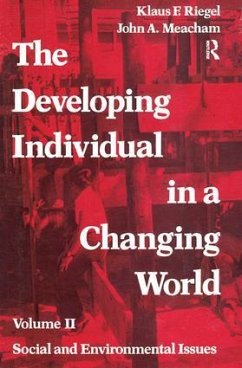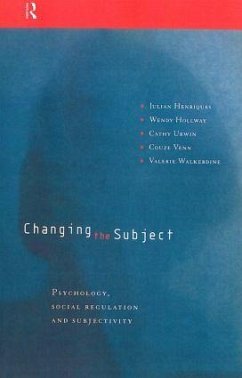
The Developing Individual in a Changing World
Volume 1, Historical and Cultural Issues
Versandkostenfrei!
Versandfertig in 1-2 Wochen
110,99 €
inkl. MwSt.
Weitere Ausgaben:

PAYBACK Punkte
55 °P sammeln!
This two-volume work levels both criticism and challenge to traditional developmental psychology














